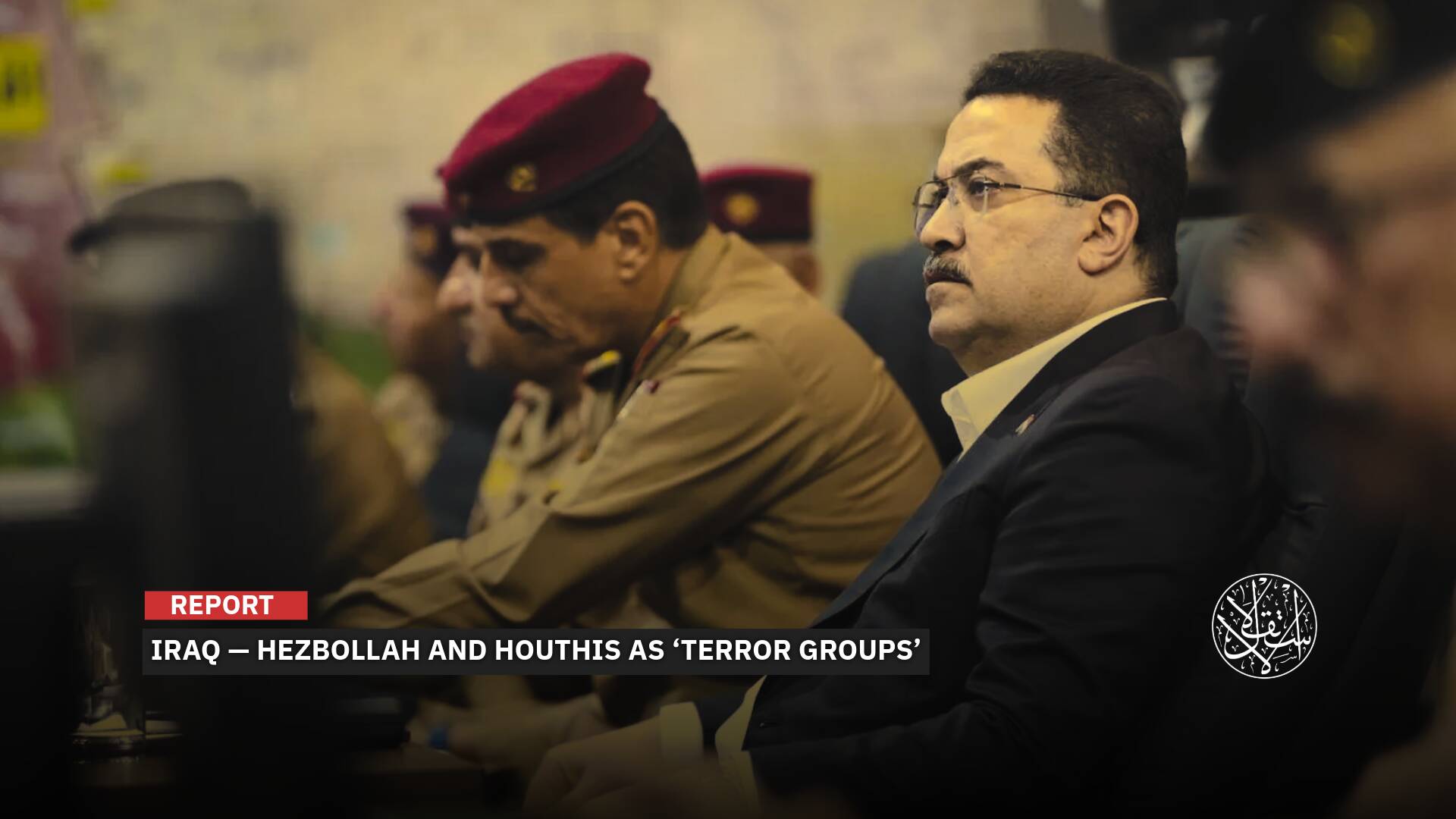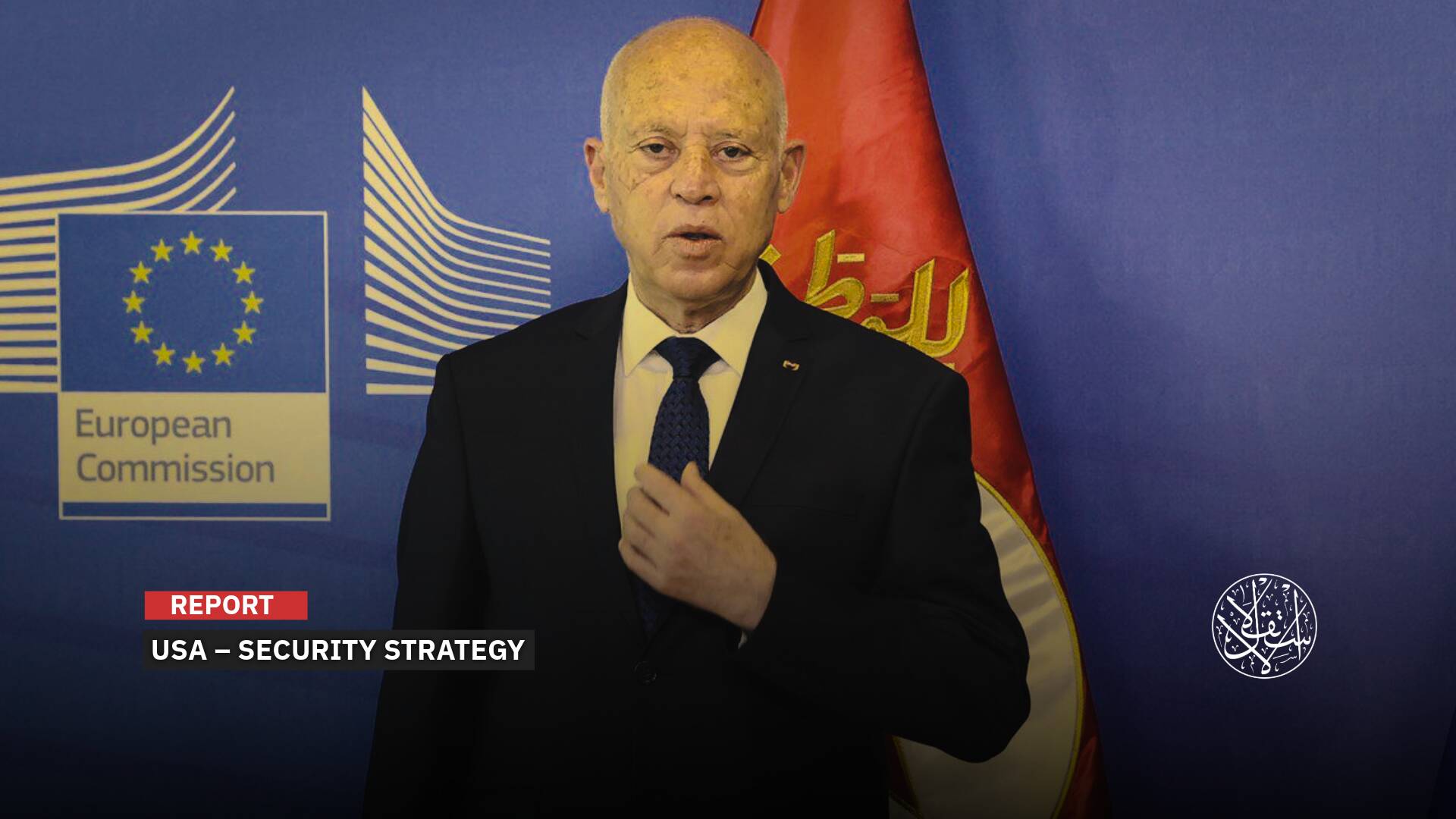Discomfort in American Left: What’s the Next Move for BlackRock, Holder of Toxic Assets in Saudi Arabia?
.png)
If Saudi Arabia stands as one of the world’s foremost oil and financial empires, then the American giant company BlackRock, specializing in risk management and financial investments, emerges as an empire in its own right, often dubbed as one of the largest and most formidable companies globally.
Years back, specifically in June 2018, Saudi Crown Prince Mohammed bin Salman hosted a meeting at his summer palace, al-Salam Royal Palace, in Jeddah. The gathering included Larry Fink, the founder and director of BlackRock, a Jewish figure who earned the moniker of the “king of Wall Street.”
The meeting drew nearly 150 international officials and heads of major financial corporations. At that time, it seemed that bin Salman would lean on Fink and his company to solidify his comprehensive economic model and to promote it on a global stage.
This fit within his plan to transform the kingdom into a regional hub for major companies and prominent investors, much like Dubai.
However, several months later, in October 2018, bin Salman ordered the killing of Saudi journalist Jamal Khashoggi.
This event dealt a severe blow to the prince’s relationship with many of his prominent partners, Larry Fink included.
Fink, like many other CEOs and heads of state, chose not to attend the Future Investment Initiative conference held a week after Khashoggi’s assassination. While Fink described Khashoggi’s murder as “horrifying,” he indicated that he wouldn’t shy away from dealing with Saudi Arabia or bin Salman.
Following bin Salman’s handling of the Khashoggi crisis and amid his efforts to reshape Riyadh as an economic, sports, and cultural hub similar to Dubai, BlackRock regained its footing. The kingdom opened its doors once more to Fink and his company.
Appointment of Amin Nasser
In a move reported on August 2, 2023, by The New York Times, Larry Fink’s closeness to bin Salman has resurfaced. The report highlighted Fink’s strong reliance on Saudi oil money, which has proven lucrative for shareholders, despite sharp criticism from the American left and climate groups, all of which Fink appears to shrug off.
The appointment of Amin Nasser, the CEO of Saudi Aramco, the world’s largest oil company, to BlackRock’s board of directors in July 2023 was a noteworthy development.
This decision by BlackRock was a clear bet by Larry Fink, who seems to cater to the capitalistic impulses of the right wing, but at the same time has sparked anger from the left due to its affiliation with fossil fuel companies that have a negative impact on climate change.
Fink’s indifference to such criticisms stems from the substantial profits that BlackRock investors reap through Saudi investments in the company’s stocks. This is not the first time Fink has aligned with Middle Eastern oil money, but the appointment of Nasser represents the latest and most significant effort to deepen these ties, given the liquidity flow the Saudis are eager to spend.
The decision to appoint Nasser has triggered anger from Brad Landers, the retirement fund overseer in New York City, one of BlackRock’s prominent investors managing nearly $250 billion.
“At a time when financial institutions need to take a collective approach to address the financial risks from climate change, BlackRock shareholders expect climate-competent, not climate-conflicted, directors,” Mr. Lander said in a statement.

The Company and the Kingdom
In recent months, Riyadh and BlackRock have notably forged multiple partnerships across various domains. On November 14, 2022, the Saudi Sovereign Wealth Fund signed a memorandum of understanding with BlackRock to explore investment opportunities in infrastructure projects in the Middle East.
The Public Investment Fund, which manages assets exceeding $600 billion, stated that the non-binding memorandum will serve as a foundation for solidifying BlackRock’s infrastructure strategy in the Middle East.
They further announced their intent to establish a specialized infrastructure investment team in Riyadh, focusing on sectors including energy, utilities, transportation, and communications.
On March 3, 2023, BlackRock announced a $6.22 billion investment in Saudi stocks through 114 companies and exchange-traded funds.
The company highlighted that these investments were concentrated in the banking sector, which accounted for around $1.99 billion in market value, representing approximately 32 percent of the company’s total investments in the kingdom.
The statement also detailed the distribution of these investments across petrochemical stocks, accounting for approximately $1.03 billion, as well as healthcare and cement stocks, with respective investments of $245.5 million and $105 million.

Fink’s Plans
Larry Fink stands as the primary driving force behind BlackRock’s strategy in the kingdom. Prior to the killing of Khashoggi, he was a frequent visitor to Crown Prince Mohammed bin Salman, having visited the prince twice in 2018.
Following the Khashoggi crisis, Fink refrained from these visits, but he decided that he couldn’t sever his ties with the prince, nor could he sideline the company’s plans and goals in the kingdom.
In April 2019, when Aramco tapped international markets for the first time with a $12 billion debt issuance, BlackRock was among the largest participants.
At that time, Fink personally sought to attract Saudi sovereign wealth funds and other state-owned funds in the Middle East to invest in BlackRock’s stocks.
Back then, the financial services company PNC, the largest shareholder in BlackRock with a 22% stake, announced its intention to sell its stake in early 2020.
Fink informed PNC’s CEO, William Demchak, that he wanted to assist in selecting new shareholders. Indeed, Fink personally contacted the heads of various sovereign wealth funds in the Middle East, including Saudi Arabia’s Public Investment Fund, and quickly brought them on board as investors in the sale of shares worth nearly $13 billion.
Riyadh also engaged BlackRock to provide advice on the kingdom’s new $50 billion fund dedicated to projects aimed at modernizing its local infrastructure.
In December 2021, the BlackRock Forest Consortium invested around $15.5 billion to acquire a 49% stake in Aramco’s natural gas pipeline.

The Toxic Assets
BlackRock was founded in 1988 by Larry Fink, a Jewish executive who reportedly earns an annual salary of up to $36 million, according to Financial Times on February 24, 2023.
On May 6, 2022, Bloomberg reported that the total assets under BlackRock’s oversight and management amount to approximately $10 trillion.
Fink became a legend on Wall Street in 1999 through his launch of what is known as “securitization,” the process in which certain types of assets are pooled so that they can be repackaged into interest-bearing securities.
This strategy became Fink’s hallmark as he leveraged this financial system to tap into all possible forms of debt, ranging from mortgages to credit card loans, which were then sold to other investors.
Fink’s name remains closely associated with being a significant factor in the global financial crisis of 2008 when he devised a system of backdoor loans that contributed to the collapse of financial markets.
During the financial crisis, the U.S. Treasury Department under the Obama administration enlisted Fink to reorganize the chaos he had partially caused.
At that time, BlackRock, based in New York, worked alongside the White House in the mission to buy what is known as “toxic assets,” assets that the Federal Reserve was not allowed to purchase by law. Fink and his company acquired them.
Toxic assets refer to assets pledged as collateral for struggling debts that are difficult to repay. They were included in the balance sheets of banks and financial institutions, and their value far exceeded their actual worth in terms of cost.
The term “toxic assets” indicates that these assets lack intrinsic value but derive their worth from the risks associated with them, traded among investors. This resemblance to poison is such that when the economy becomes saturated with it, sectors start failing one after another.
Sources
- Larry Fink’s Bet on Saudi Oil Money Is Also His Latest E.S.G. Woe
- BlackRock Names Former Obama Aide to Run Sustainable Investing
- For Saudi Arabia BlackRock explores infrastructure projects in the Middle East [Arabic]
- Could Index Funds Be ‘Worse Than Marxism’?
- Investors weigh up Merrill’s deal with BlackRock









